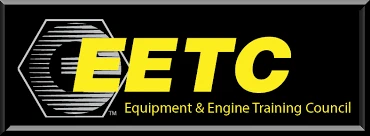
Archive for December 2022Bad Vibrations (Brake Rotor Replacement)Posted December 25, 2022 8:13 AMIf you’ve ever stepped on your brake pedal and felt your vehicle vibrate, that’s a signal that you shouldn’t ignore. A pulsating brake pedal is a sign that something is wrong. Braking action should be smooth, sure, and quiet, not shaky and noisy. Most newer vehicles have disc brakes, called that because they have a round, flat disc connected to each wheel. Those discs are the rotors. Other parts called brake pads are squeezed against those discs when you press on the brake pedal. Remember that vibration we mentioned? That can be caused by the rotor not having a straight, true surface. Rotors can heat up from friction and warp. They can become thinner from constant wear. Rotors can rust from the elements they’re exposed to, such as rain, snow ice, and salt. They can get grooves in them from so many contacts with the pads. The signs of worn rotors are vibrations, grooves on the rotor (which you can see sometimes through open spots in the wheel) noise such as squealing or scraping when you brake, and increased stopping distance. While it used to be common for rotors to be machined (shaved down to restore their flat surface), newer vehicles have thinner rotors, so your service adviser may suggest you replace rotors when they start showing signs of significant wear. Brakes are important safety equipment for every vehicle. They enhance your control while driving, so it’s important that they be regularly inspected and maintained. A good time is when you have your tires rotated. A technician can then look at all components of your brakes and recommend any service you may need to keep your brakes in top shape. Steve & Stacy's Servicenter Oil's Well That Ends Well (Oil Change Grades and Weight)Posted December 18, 2022 9:47 AMChanging your oil regularly is one of the most important things you can do to keep your vehicle running well. And knowing the right type of oil to use is also very important. Engine oil is classified by weight, but it doesn't refer to how much the oil would weigh if you put it on a scale. It refers to viscosity, or how easily the oil flows through the engine. Most engines operate normally at around 210°F/99°C. The viscosity, or weight, is assigned a number by how well it flows at that temperature. The lower the number, the more freely it flows. Most vehicle engines use what's called a multigrade oil which behaves differently in different temperatures. Multigrade oils have a "W" in their viscosity number that you may have seen on a bottle of oil, something like 5W30. The W stands for winter and shows how freely it flows in colder temperatures. That means a 5W30 oil will behave like a 5 weight oil in lower temperatures (less viscous or thinner) and a 30 weight oil in warmer temperatures (more viscous or thicker). That's important on a cold day because the oil needs to behave like a thinner oil when you start your engine since it need to lubricate engine components immediately to protect the metal components. Then as the engine warms up, it behaves like a thicker oil to prevent friction among those parts. Pretty neat trick, right? The type of oil you use can differ depending on what type of climate you operate your vehicle in and how your vehicle is used (carrying big loads, towing, etc.). Your owner's manual contains several different recommendations based on these factors. Your service advisor can recommend the right oil for your needs. Like Shakespeare said, "Oil's well that ends well." Steve & Stacy's Servicenter Why You Have an O2 Sensor (Oxygen Sensor)Posted December 11, 2022 7:28 AMIf someone asked you what gas made up the largest portion of the atmosphere, what would you guess? Well, it's not oxygen; it only makes up 20.9 percent. But since we're talking about oxygen, you should know that your vehicle uses oxygen sensors to make sure your engine is running the way it should. The oxygen sensors measure how much oxygen is in your exhaust. If there's too much, it means there's a problem with the mixture of fuel and air. The sensor sends signals to computers in your engine and adjusts the mixture so it maximizes performance and efficiency. It does this constantly. Many vehicles have multiple oxygen sensors. Some have one close to the engine, another close to the muffler. Two measurements are better than one since they allow readings to be more accurate. You may have a vehicle with a dual exhaust, so you'd have twice as many oxygen sensors. Your oxygen sensors can fail. One thing that can damage them is contamination from bad fuel. The sensors can simply wear out, though they usually last a long time. It's not unusual for an oxygen sensor to last 100,000 miles/160,000 km. One more thing that can cause an oxygen sensor to fail is residue from an engine that's burning oil. Plus contaminants from the road like salt can also cause problems. Here are some signs that your oxygen sensors might be failing.
Head to your service facility and tell your advisor what symptoms your vehicle is experiencing. They have the equipment and training to track down the issue. Note that simply replacing the oxygen sensor is often not enough since it doesn't get to the root of the problem; other repairs may be needed. So make sure your oxygen sensors are working the way they should be. Oh, and back to the question of what gas makes up most of the Earth's air? It's nitrogen, which comprises 78 percent of the air we—and our engines—breathe. Steve & Stacy's Servicenter Motor Oil?The Synthetic Advantage (Synthetic oil vs Conventional)Posted December 4, 2022 9:11 AMYou’ve probably already heard that regular oil changes are extremely important for the health of your vehicle’s engine. That’s sound advice. But what you might not know is when it comes to motor oil, the real thing may not be the best thing for your engine. There are different types of motor oil:
The first thing you need to know is that most new engines require synthetic oil. If synthetic oil is recommended for your car – you MUST use it. For the rest, there are many advantages to using synthetic oil over conventional oil.
Synthetic oil can be a better choice if you live in an extremely hot or cold climate or put a lot of strain on your engine by towing or carrying heavy loads. It also may be good for older engines that sometimes have a tendency to develop sludge. Synthetic oil is a more expensive option, but you likely won’t have to have your oil changed as often. Some synthetics are recommended to last 10,000-15,000 miles/16,000-24,000 km between changes. You might also consider a synthetic blend that gives you some of the advantages of synthetic oil at a lower cost. Have a talk with your service adviser about recommendations for what will best suit your vehicle and driving habits. It’s interesting to note that in recent years, more than one out of two vehicle owners are opting for synthetic oil or a synthetic blend when they get their oil changed. Sounds like they’re on to something. In the long run, if you have fewer oil changes with synthetics, you’ll use less oil, a bonus for our environment. Steve & Stacy's Servicenter | ||
SearchArchiveApril 2016 (16)May 2016 (5) June 2016 (4) July 2016 (5) August 2016 (4) September 2016 (4) October 2016 (5) November 2016 (4) December 2016 (4) January 2017 (5) February 2017 (4) March 2017 (4) April 2017 (3) May 2017 (4) June 2017 (5) July 2017 (5) August 2017 (3) September 2017 (3) October 2017 (5) November 2017 (4) December 2017 (3) January 2018 (5) February 2018 (4) March 2018 (4) April 2018 (5) May 2018 (4) June 2018 (4) July 2018 (5) August 2018 (4) September 2018 (5) October 2018 (4) November 2018 (4) December 2018 (5) January 2019 (5) February 2019 (4) March 2019 (4) April 2019 (4) May 2019 (4) June 2019 (5) July 2019 (4) August 2019 (4) September 2019 (5) October 2019 (4) November 2019 (4) December 2019 (5) January 2020 (5) February 2020 (4) March 2020 (5) April 2020 (4) May 2020 (5) June 2020 (4) July 2020 (4) August 2020 (5) September 2020 (3) October 2020 (4) November 2020 (5) December 2020 (4) January 2021 (6) February 2021 (4) March 2021 (4) April 2021 (4) May 2021 (5) June 2021 (4) July 2021 (4) August 2021 (5) September 2021 (4) October 2021 (5) November 2021 (3) December 2021 (4) January 2022 (6) February 2022 (4) March 2022 (4) April 2022 (4) May 2022 (5) June 2022 (4) July 2022 (5) August 2022 (4) September 2022 (4) October 2022 (5) November 2022 (4) December 2022 (4) January 2023 (5) February 2023 (4) March 2023 (4) April 2023 (5) May 2023 (4) June 2023 (4) July 2023 (5) August 2023 (4) September 2023 (4) October 2023 (5) November 2023 (4) December 2023 (5) January 2024 (5) February 2024 (4) March 2024 (5) April 2024 (4) May 2024 (4) June 2024 (5) July 2024 (4) August 2024 (4) September 2024 (5) October 2024 (4) November 2024 (4) December 2024 (5) January 2025 (4) February 2025 (4) March 2025 (5) April 2025 (4) May 2025 (4) June 2025 (5) July 2025 (1) | CategoriesMaintenance (8)Service Intervals (2)Service Standards (2)Steering (6)Keys to a long lasting vehicle (2)Air Conditioning (7)Fuel Economy (4)Fuel System (5)Battery (9)Alignment (7)What Customers Should Know (67)Transmission (3)Brakes (14)Dashboard (1)Headlamps (4)Auto Safety (4)Safety (2)Fluids (6)Alternator (5)Oil Change (8)Fuel Saving Tip: Slow Down (2)Tires and Wheels (4)Cooling System (7)Drive Train (4)Winter Prep (2)Inspection (2)Windshield Wipers (2)Check Engine Light (3)Tires (10)Timing Belt (2)Automotive News (1)Exhaust (9)Winter Tires (1)Older Vehicles (1)Water Pump (2)Wheel Bearings (1)Suspension (2)Transfer Case Service (1)Spark Plugs (2)TPMS (3)Shocks & Struts (1)Brake Service (4)Tire Rotation and Balancing (2)Differential Service (1)Serpentine Belt (1)Shocks and Struts (2)Fuel Filter (1)Engine Air Filter (1)Trip Inspection (1) | |
What our clients are saying about us
We have established longterm and stable partnerships with various clients thanks to our excellence in solving their automotive needs!
Awesome staff! They are so kind and helpful and went out of their way to help me out when I was in a pinch nearby.

I am a repeat customer - went to get my oil changed and they reminded me that I was not yet time! I very much appreciate the honesty and looking out for me!





















